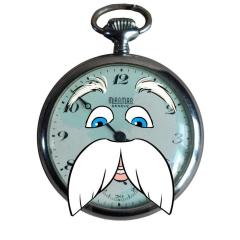-
Recently Browsing
- No registered users viewing this page.
-
Topics
-
Posts
-
Thank you for your introduction and welcome to this friendly forum. We all look forward to your contributions and continued involvement. This might be helpful for you. 704789946_TZIllustratedGlossary(2).pdf
-
By Michael1962 · Posted
I take it that you're comment re the Unicorn is 'tongue-in-cheek'? Would any of the watches that are on the link I posted be likely to be radium watches? What period was that prevalent in and when did the practice stop? -
By Michael1962 · Posted
As much as I hate Facebook, can a forum-like place be set up on there? Free and the ownership can be taken over by the next person whenever. -
By HectorLooi · Posted
I existed before the term mechatronics engineer existed. I had to combine electricity, electronics, pneumatics, hydraulics and computing just to keep my own equipment working. I have never sub contracted any of my own repairs to the suppliers because I know I could do a better job. For a long time, dental suppliers in my country would bring their dead equipment to me that their own engineers cannot handle. I have accidentally embarrassed a couple of hospital heads of engineering by demonstrating their inadequacy. I think mechatronics is the most under-appreciated, under valued of all the engineering sciences. I had a part-time dental assistant about 25 years ago, who was studying mechatronics in the polytechnic. She was absolutely clueless about the job prospects for a mechatronics engineer. I asked her about her aspirations and she replied that she really wanted to work in the games industry. In our dental profession, equipment have evolved from simple mechanical to electro-mechanical to logic-driven electro-mechanical and currently to computer driven machines. The medical equipment suppliers who employ mechanical engineers and/or mechanical engineers cannot cope with the repairs of the newer equipment. And many times end up changing whole modules and whole machines just because they cannot repair them. But I think HR is afraid to employ a mechatronics engineer just because they don't know what a mechatronics engineer does. Mechatronics is much more fun. It combines almost all of the engineering sciences and produces an all-rounded engineer. But until HR changes their mindset, not all door will be open. -
Welcome Tarheel, there is a lot of help on this forum...
-







Recommended Posts
Join the conversation
You can post now and register later. If you have an account, sign in now to post with your account.
Note: Your post will require moderator approval before it will be visible.